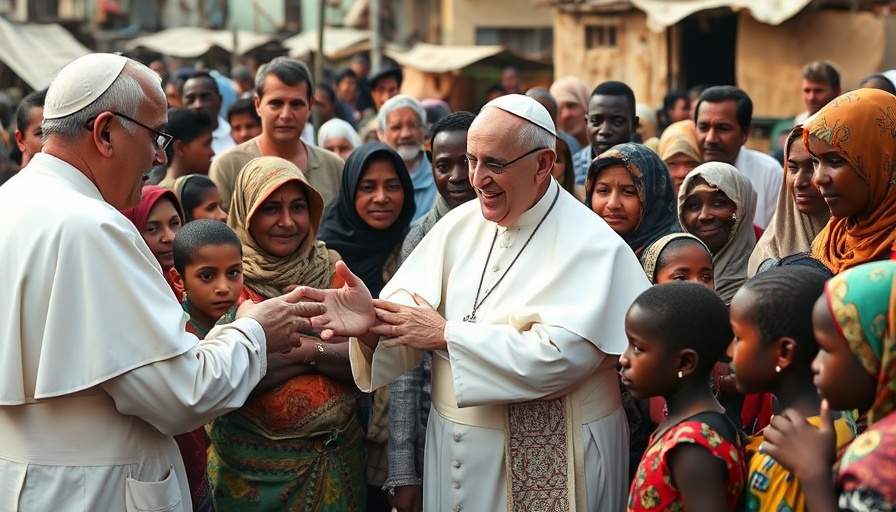
Pope Francis: A Trailblazer in Changing the Catholic Church
Pope Francis's journey from Buenos Aires, Argentina, to the Vatican marked a significant shift in the Roman Catholic Church. Elected in 2013 as the first Latin American pontiff, he took the reins during a time of crisis and brought with him a vision centered around inclusivity, compassion, and social justice. His papacy, lasting twelve years, was characterized by a bold approach that challenged traditional norms and ruffled the feathers of more conservative factions within the church.
Legacy of Inclusivity and Compassion
Francis's commitment to social issues was profound. He often spoke about the plight of migrants and the marginalized in society, urging the global community to embrace those who suffer. His belief that the church should care for the outcast was evident in his outreach programs and his vocal stance against socio-economic inequalities. For many Catholics, his focus on inclusion resonated deeply, as it presented a church that was moving forward in a modern world.
Confronting Tradition: The Struggles of Reform
Throughout his papacy, Francis faced fierce criticism from traditionalists who felt threatened by his progressive views. His efforts to diversify church leadership, his papal encyclicals that emphasized care for Earth's environment, and calls for reform regarding the church's stance on issues like marriage equality and contraception were met with resistance. This dichotomy between change and tradition highlighted the struggles within the church, as many wondered whether it would embrace the future or cling to its entrenched views.
The Impact of His Death: A Church at a Crossroads
The passing of Pope Francis leaves a void in the leadership of a church that is navigating numerous challenges, from dwindling attendance in some regions to facing growing secularism worldwide. His death signals a pivotal moment for the Catholic Church, as it must now decide whether to continue on the path of reform prepared by Francis or revert back to its more traditional roots.
The Future of the Papacy: Predictions and Opportunities
As the church prepares to elect a new pope, many wonder what direction the new leader will take. Will they continue Francis's mission to emphasize compassion and inclusivity, or take a step back towards conservatism? This transition could define the future of the Catholic Church and its relevance in the global community.
Cultural Significance: More Than Just a Religious Figure
Pope Francis was more than just a religious leader; he became a symbol of hope for many around the world. His work reached beyond the confines of the Vatican, influencing global discussions on capitalism, inequality, and environmental stewardship. His messages resonated in various cultures, making him a crucial figure in contemporary discourse on morality and responsibility.
The Emotional Landscape: Mourning a Figurehead
For millions of followers worldwide, the death of Pope Francis is a deeply emotional moment. His unique style and messages brought hope and comfort to many. The global community is expected to mourn this leader who championed the causes of the downtrodden, reminding everyone of the power of faith in making a positive impact on the world.
Conclusion: Reflecting on a Transformative Legacy
Pope Francis's legacy will be remembered for years to come. His approach to leadership brought a fresh perspective to the Catholic Church, inviting countless followers to look upon their faith through a lens of compassion and responsibility. As the church moves forward, the impact of his teachings will continue to resonate, inviting future leaders to uphold the values he championed. The choice now lies with the next papal leader – the direction they choose could shape the church's narrative for generations.
 Add Row
Add Row  Add
Add 




 Add Row
Add Row  Add
Add 

Write A Comment